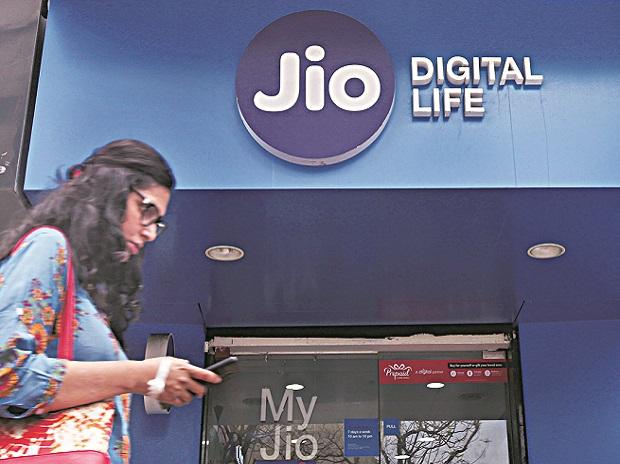Reliance Jio is learnt to have made the highest earnest money deposit (EMD) for participating in the upcoming auctions in an attempt to gather the maximum amount of spectrum along with some additional airwaves for future use.
According to calculations, if the company were to buy one block of spectrum, in all 22 telecom circles, in each band, it would have deposited at least Rs 7,800 crore, as earnest money deposit.
Airtel is right behind Jio in terms of deposit money, followed by Vodafone Idea (Vi) with the least submission. It is learnt that Vi has evinced an interest in buying only renewal spectrum and has paid EMD commensurate to the quantity of spectrum.
EMD, or the minimum deposit for the premium 700-megahertz (MHz), to be sold in the block size of 5 MHz (paired) is Rs 3,660 crore. This is the most expensive band on offer in the auctions.

Airtel is looking at some new spectrum, besides renewing the licence for the older one. Vi is only eyeing renewal spectrum in the current auctions. All the three private telcos submitted their applications for participation in the upcoming auction of airwaves by the Department of Telecommunications. MSTC has been selected to handle the spectrum auction. The public sector enterprise executed coal auctions in early 2015. They were held after the Supreme Court cancelled allocation of coal mines in September 2014. MSTC is also holding auctions for various central and state government departments.
The Telecom Regulatory Authority of India (Trai), in August 2018, came out with its recommendations on spectrum pricing, wherein the regulator reduced the base price of frequencies that went unsold in the 2016 auction.
The reserve price for the premium 700 MHz spectrum, which went unsold in 2016, was reduced by more than 40 per cent to Rs 6,568 crore per MHz (all-India), from Rs 11,485 crore in 2016. Trai recommended a base price of Rs 4,651 crore for paired spectrum in the 800-MHz band (covering 19 circles), Rs 1,622 crore per MHz for the 900-MHz band (covering seven circles), Rs 3,399 crore per MHz in the 2,100-MHz band (covering 21 circles), and Rs 821 crore per MHz in the 2,500-MHz band (covering 12 circles). It also suggested Rs 960 crore per MHz for unpaired spectrum in the 2,300-MHz band on a pan-Indian basis.
The spectrum bands from 3,300 MHz to 3,600 MHz, which are the 5G airwave bands, have been kept aside.
 Dear Reader,
Dear Reader,
Business Standard has always strived hard to provide up-to-date information and commentary on developments that are of interest to you and have wider political and economic implications for the country and the world. Your encouragement and constant feedback on how to improve our offering have only made our resolve and commitment to these ideals stronger. Even during these difficult times arising out of Covid-19, we continue to remain committed to keeping you informed and updated with credible news, authoritative views and incisive commentary on topical issues of relevance.
We, however, have a request.
As we battle the economic impact of the pandemic, we need your support even more, so that we can continue to offer you more quality content. Our subscription model has seen an encouraging response from many of you, who have subscribed to our online content. More subscription to our online content can only help us achieve the goals of offering you even better and more relevant content. We believe in free, fair and credible journalism. Your support through more subscriptions can help us practise the journalism to which we are committed.
Support quality journalism and subscribe to Business Standard.
Digital Editor

RECOMMENDED FOR YOU